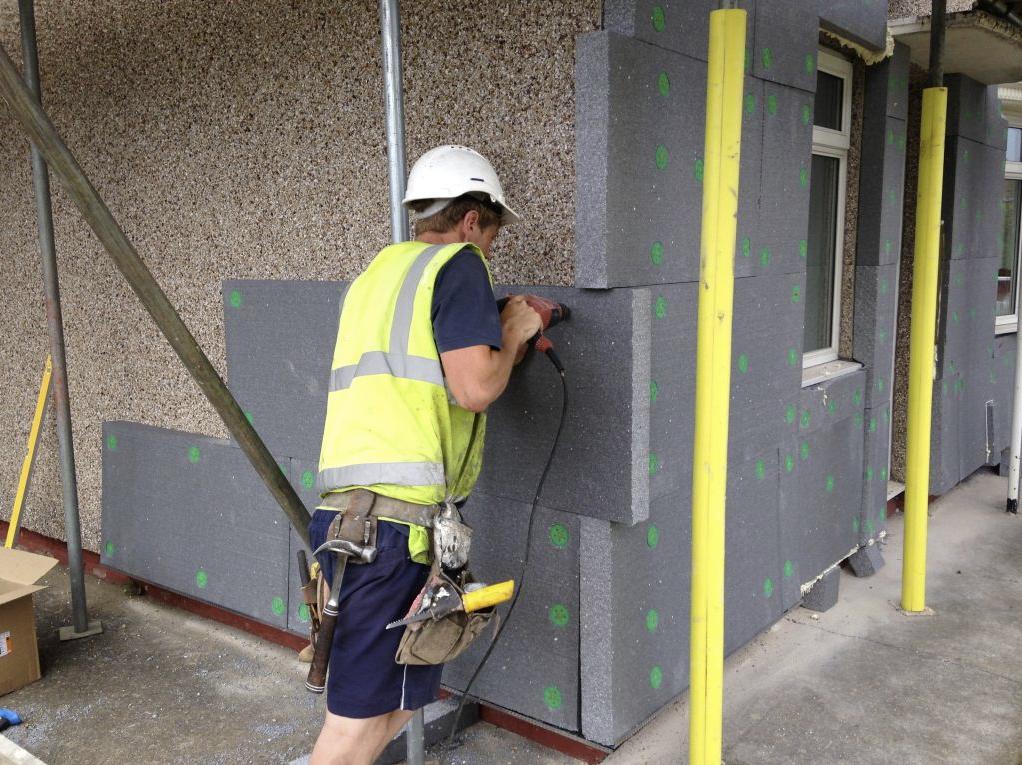As the global focus on energy efficiency and sustainability intensifies, homeowners are increasingly seeking ways to enhance the energy performance of their properties. Two significant avenues for achieving this are through External Wall Insulation (EWI) and Grants For Heating improvements. This article explores the benefits of these initiatives, the types of grants available, and how homeowners can take advantage of them.
What is External Wall Insulation?
External Wall Insulation Grant involves applying a layer of insulating material to the outside of a building’s walls. This is typically covered with a protective render or cladding. The primary purpose of EWI is to improve thermal performance, thereby reducing heat loss, increasing energy efficiency, and lowering heating costs.
Benefits of External Wall Insulation
Energy Efficiency: EWI significantly reduces the amount of energy required to heat a home. By minimizing heat loss, homeowners can enjoy lower energy bills and a more comfortable living environment.
Aesthetic Improvement: EWI can enhance the appearance of a property. With various cladding options available, homeowners can choose styles that complement their home’s architecture.
Noise Reduction: Insulating a building’s exterior can also provide soundproofing benefits, making homes quieter and more tranquil.
Protection Against Weather: EWI helps protect the structure from moisture, preventing issues like dampness and mold, which can compromise the integrity of the building.
Increase in Property Value: Homes with better energy efficiency ratings often have higher market values. Investing in EWI can make a property more attractive to potential buyers.
What are Grants for Heating?
Grants for heating refer to financial assistance programs designed to help homeowners improve their heating systems. This can include upgrading to more efficient boilers, installing heat pumps, or even implementing renewable energy technologies like solar panels.
Benefits of Heating Grants
Cost Savings: Upgrading heating systems can be costly. Grants significantly reduce the financial burden, making it easier for homeowners to invest in modern, energy-efficient solutions.
Environmental Impact: Improved heating systems often use less energy and can be more environmentally friendly, contributing to lower carbon emissions.
Comfort Improvement: Modern heating systems provide more consistent heating, enhancing overall comfort within the home.
Increased Property Value: Like EWI, energy-efficient heating solutions can increase a home’s value and appeal to potential buyers.

Types of Grants Available
Government Schemes
Many governments offer grants and incentives for energy efficiency improvements. These schemes vary by region but often include:
Green Homes Grant: In the UK, the Green Homes Grant has provided funding for energy efficiency improvements, including EWI and heating system upgrades. Although this specific program has ended, similar initiatives may be available.
Energy Company Obligation (ECO): This UK government scheme mandates that larger energy suppliers fund energy efficiency measures for vulnerable households, which can include EWI and heating upgrades.
Local Authority Grants
Local councils often have specific programs to promote energy efficiency. These may include grants or interest-free loans for EWI or heating upgrades, especially targeted at low-income households.
Non-Profit Organizations
Various non-profit organizations and charities offer funding or assistance for energy efficiency projects. These programs can vary widely, so homeowners should research local options.
Utility Company Programs
Some utility companies provide rebates or grants for homeowners who upgrade to energy-efficient heating systems. These incentives can vary by region and are often tied to specific energy efficiency measures.
How to Apply for Grants
Research Available Grants
Homeowners should start by researching what grants are available in their area. This can typically be done through government websites, local councils, or energy companies.
Check Eligibility Requirements
Most grants have specific eligibility criteria, such as income limits or the type of property. Ensure that you meet these requirements before applying.
Gather Documentation
Applicants will often need to provide various documents, such as proof of income, details about their property, and any existing energy efficiency measures.
Complete the Application
Follow the application guidelines provided by the granting body. This may involve filling out online forms or submitting paper applications.
Schedule Assessments
Some grants may require an energy assessment of your home to determine the potential benefits of EWI or heating upgrades.
Receive Funding and Complete the Project
Once approved, homeowners can receive funding and proceed with their projects. It’s essential to work with certified contractors to ensure that installations meet local standards and regulations.
Conclusion
Investing in External Wall Insulation and upgrading heating systems can lead to significant energy savings, enhanced comfort, and increased property value. With the availability of various grants, homeowners have a valuable opportunity to improve their homes while benefiting from financial assistance.
By taking the time to research available grants, understanding the application process, and engaging qualified professionals, homeowners can embark on their journey toward a more energy-efficient and comfortable living space. As the importance of sustainable living continues to grow, initiatives like EWI and heating grants play a crucial role in promoting energy efficiency and environmental responsibility.
